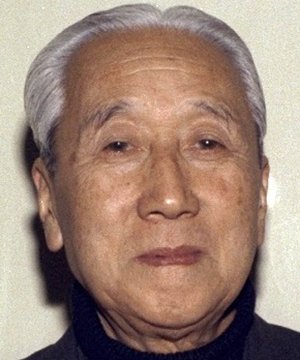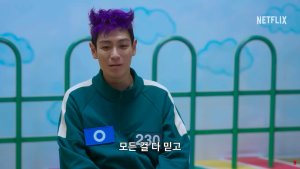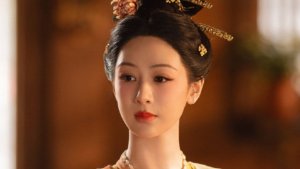Gosho Heinosuke
- Name: Gosho Heinosuke
- Native name: 五所平之助
- Also Known as: Momozono Kyota, Goshotei, ごしょ へいのすけ, 桃園狂太, 五所亭, 五所平右衛門
- Nationality: Japanese
- Gender: Male
- Born: January 24, 1902
- Died: May 1, 1981
He was born as the illegitimate child of his father, Heisuke, who ran a large dry goods wholesaler called "Buzenyoya" in Nabecho, Kanda, Tokyo, Japan. His biological mother was a geisha in Shin-Tomi-cho. When he was five years old, his eldest brother passed away, and he was then chosen as the successor, separating from his mother's care. In 1916, he entered Keio Commercial School. During his student days, he was deeply involved in haiku poetry.
In 1921, he volunteered to enlist in the 1st Infantry Regiment and became a probationary officer in the reserves. In 1923, after graduating from Keio Commercial School, he joined the Shochiku Kamata Studio.
After working as an assistant director for Shimazu, he made his directorial debut in 1925 with "Nanajima no Haru," which he also wrote the screenplay for. Around this time, he re-enlisted in the military as a second lieutenant but was placed in the reserves. Upon returning to Shochiku, he continued to release works that depicted the lives of ordinary people with humor and lyricism.
In 1936, he was stricken with pulmonary tuberculosis and took several months off to recuperate, but he returned to work with "Shindo." After the release of "Kokeishi," he had a disagreement with Jyodo Shiro and left Shochiku. In 1942, he transferred to Daiei.
In late March 1945, he received a military draft order. Although he had been called up for exercises several times before, this was the first time he received a red draft notice. He was assigned to the 49th Infantry Regiment, but the next day, he was granted a one-year postponement due to his poor health during the physical examination and was sent home on the same day. He remained there until the end of the war.
After the war, he returned to Shochiku before joining Toho. During this time, the Toho labor dispute erupted. Taking the union's side, Gosho, along with other people, barricaded themselves in the Kinuta studio. However, in 1950, when the wave of the Red Purge ordered by the Supreme Commander for the Allied Powers reached the film industry, Gosho was also listed as an expelled person. The dispute ended the same year, and Gosho left Toho.
In the following year, 1951, Gosho, along with others, formed the independent studio Studio 8 and partnered with Shin Toho.
From 1964 onwards, he served as the chairman of the Directors Guild of Japan for 16 years, succeeding Ozu Yasujiro.
In 1968, he directed the full-scale puppet film "Meiji Haruaki," created with the cooperation of the Takeda Ningyo-za. Some of the artifacts, including a puppet modeled after Gosho, used in this film were donated to the Tokyo National Museum of Modern Art Film Center.
He was also known as a haiku poet and was active under the haiku pen name "Goshotei" (五所亭) as a member of the "Shunto" group. He also served as a supervisor for the Haiku Poets Association.
He began composing haiku in the 8th year of the Taisho era, and during his time at Keio Commercial School in the 10th year of Taisho, he became a member of "Kabidan." Although he suspended composing haiku after the 12th year of Taisho, when the Itou Haiku Society was established in the 9th year of Showa, he joined and diligently composed haiku under the guidance of Kubota Mantaro.
In 1924, when he accompanied the New Year's greetings rounds, he was secretly asked by the cinematographer Obahama Taro, who was the boyfriend of the star actress at the time, To Eiko, to discreetly act as her bodyguard.
He passed away on May 1, 1981, at the age of 79. His grave is located at Sosho-ji Temple in Minato Ward.
(Source: Japanese = Wikipedia || Translation = MyDramaList) Edit Biography
Screenwriter
| Title | Rating |
|---|---|
| Shin Ohatsu Jizo | 0.0 |
Director
| Title | Rating |
|---|---|
| A Woman and the Beancurd Soup | 0.0 |
| An Innocent Witch | 0.0 |
| Aijo no Keifu | 0.0 |
| As the Clouds Scatter | 6.0 |
| Yoku | 0.0 |
| Elegy of the North | 6.2 |
| Yellow Crow | 0.0 |
| Takekurabe | 6.0 |
| Ai to Shi no Tanima | 1.0 |
| Entotsu no Mieru Basho | 7.0 |
| A Ripple in a Morning | 0.0 |
| Omokage | 7.1 |
| Once More | 6.0 |
| The Young Women of Izu | 5.0 |
| Hanakago no Uta | 6.0 |
| Woman in the Mist | 5.5 |
| Burden of Life | 7.0 |
| Hanamuko no Negoto | 6.0 |
| The Dancing Girl of Izu | 7.0 |
| Hanayome no Negoto | 6.0 |
| The Neighbor's Wife and Mine | 7.3 |
| Aiyoku no Ki | 0.0 |
| A Smiling Life | 0.0 |
| Yoru no Meneko | 0.0 |
Screenwriter & Director
| Title | Rating |
|---|---|
| Aru Yoru Futatabi | 0.0 |
| An Inn at Osaka | 7.0 |
| Dispersed Clouds | 6.0 |
| Shinsetsu | 3.0 |
| A Night of Passion | 0.0 |
Trending Articles
'When the Phone Rings' sparks outrage for misrepresentation of Israel-Palestine conflict
News - Jan 5, 2025
A scene from the final episode of When the Phone Rings sparks outrage among international viewers
Former BIGBANG's T.O.P. to address Korean media regarding his 'Squid Game Season 2' role
News - Jan 10, 2025
Former BIGBANG member T.O.P also known as Choi Seung Hyun will finally meet the Korean media to discuss his recent work, Squid Game Season 2.
Zhao Li Ying, Chen Zhe Yuan, Bai Lu, Dylan Wang, and more win at Weibo Awards 2024
News - Jan 11, 2025
Check out the winners of Weibo Awards 2024
Lee Chae Min is in talks to replace Park Sung Hoon in the upcoming K-drama 'The Tyrant's Chef'
News - Jan 13, 2025
Lee Chae Min may replace Park Sung Hoon in the upcoming tvN K-drama The Tyrant's Chef.
ASTRO's Cha Eun Woo will reportedly star alongside Go Min Si in the Hong Sisters' new K-drama
News - Jan 10, 2025
ASTRO's Cha Eun Woo might be the leading man of Go Min Si in a new Hong Sisters K-drama.
'Flourished Peony' embroiled in controversy over unauthorized use of makeup and styling concepts
News - Jan 13, 2025
Full details inside
Dylan Wang's 'Guardians of the Dafeng' lands on Tencent's annual rankings list
News - Jan 8, 2025
Guardians of the Dafeng's popularity continues to rise despite mixed reviews
Song Hye Kyo on how she addresses rumors, hate comments; her beauty secrets, and more
News - Jan 9, 2025
Song Hye Kyo opens up about how she's changed from the past, how she addresses rumors about her and more.

















